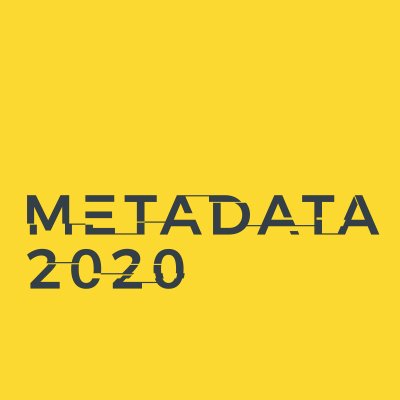 Metadata 2020 is a new collaboration, launched this week, to advocate for richer, connected ,and reusable metadata for all research outputs. ORCID is one of a group of organizations involved in this initiative, which also includes Crossref, DataCite, OpenAIRE, California Digital Library, Wikimedia, and OCLC among others.
Metadata 2020 is a new collaboration, launched this week, to advocate for richer, connected ,and reusable metadata for all research outputs. ORCID is one of a group of organizations involved in this initiative, which also includes Crossref, DataCite, OpenAIRE, California Digital Library, Wikimedia, and OCLC among others.
We believe that:
- Richer metadata fuels discoverability and innovation
- Open metadata allows for conversations and data exchange between systems and communities
- Reusable metadata eliminates duplication of effort
Metadata is important to ORCID for two main reasons.
First, embedding authenticated ORCID iDs into the metadata describing a researcher’s activities and contributions will enable accurate, unambiguous information about the researchers and her/his contributions to flow between the many systems that make up the research infrastructure. For example, including authenticated iDs in the metadata for publications during the manuscript submission process enables that information – with the author’s permission – to be connected back to their ORCID record when the DOI for the article is minted. From there, the author can share the information with other organizations that s/he interacts with – their university, funder, society, and more. It also enables the iD to be indexed, making it more easily discoverable in a host of databases.
Second, we want the metadata that is connected to ORCID records to be the best it can be – persistent, resolvable, and well-managed. This means working with the sources of that metadata to define and implement standards that will benefit the whole scholarly community.
Metadata 2020 will engage organizations and individuals from across scholarly communications – publishers, aggregators, service providers, librarians, funders, and researchers themselves. Our goal is for them to commit to improving the quality and interoperability of their metadata. We will demonstrate why richer metadata should be a priority for the research community, how to evaluate and improve the metadata you create and consume, and what can be achieved when the community works together toward a common goal. We will do this through workshops, resources, and evaluation and development tools, as well as through sharing stories and resources from metadata creators and consumers.
You can find out more about the campaign and how to participate at Metadata2020.org, and follow @Metadata2020 on Twitter. We’ll also be reporting back periodically on our progress here.
